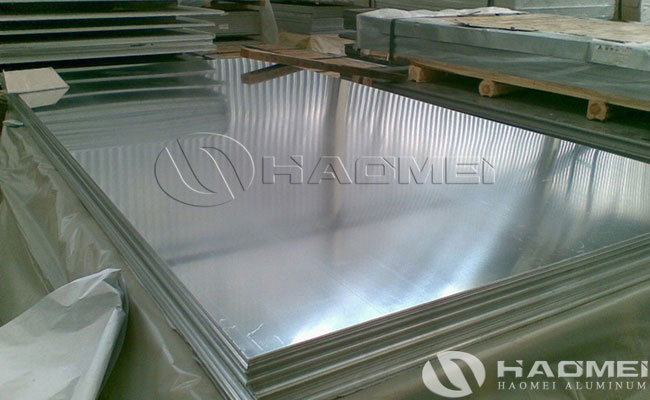-
- News Center
- Related News
-
- Aluminium Square Plate
- 2015 Haomei Annual Meeting of the New Year

- Square aluminum plate
-
- Aluminium Tooling Plate Grades
The aluminium tooling plate grades are mainly based on their strength, processing performance, wear resistance, corrosion resistance and thermal stability.
Common aluminium tooling plate grades are as follows:
1. 2XXX series aluminum-copper alloy (Al-Cu)
- Features: high strength, good heat treatment strengthening effect, good fatigue resistance, but general corrosion resistance (surface treatment required).
- Typical grades:
- 2024 (AA2024): Contains about 4.4% copper and 1.5% magnesium, with strength close to steel, and is often used in molds that require high rigidity and wear resistance, such as stamping molds and injection mold structural parts.
- 2A12 (LY12): Chinese brand, with similar performance to 2024, suitable for mold parts that bear large loads.
2. 5XXX series aluminum-magnesium alloy (Al-Mg)
- Features: low density, excellent corrosion resistance (especially resistance to seawater and atmospheric corrosion), good weldability, medium strength, no heat treatment strengthening ability (cold working strengthening).
- Typical grades:
- 5052 (AA5052): Contains about 2.5% magnesium, good plasticity, suitable for lightweight molds that require corrosion resistance, such as food industry molds and chemical equipment molds.
- 5083 (AA5083): Contains about 4.5% magnesium, has higher strength, strong resistance to stress corrosion, and is often used in shipbuilding and marine engineering related molds.
3. 6XXX series aluminum-magnesium-silicon alloy (Al-Mg-Si)
- Features: Heat treatment strengthening (strength can be improved by T6 treatment), balanced comprehensive performance, good processability, weldability and corrosion resistance, and high cost performance.
- Typical grades:
- 6061 (AA6061): Contains 1.0% magnesium and 0.6% silicon, moderate strength, excellent cutting performance, widely used in general industrial molds, frame molds, and simple structural parts.
- 6063 (AA6063): Lower magnesium and silicon content, better plasticity, high surface finish, often used in extrusion molds, decorative molds or parts with high surface accuracy requirements.
- 6082 (AA6082): Higher strength than 6061, good weldability, suitable for large mold structures or molds that need to be welded and assembled.
4. 7XXX series aluminum-zinc-magnesium alloy (Al-Zn-Mg-Cu)
- Features: high strength (highest strength among aluminum alloys), good fatigue resistance, but poor corrosion resistance (requires coating protection), high cost.
- Typical grades:
- 7075 (AA7075): Contains about 5.6% zinc, 2.5% magnesium, and 1.6% copper. The strength is close to high-strength steel. It is suitable for high-load molds, aerospace molds, or precision molds that require impact resistance.
- 7050 (AA7050): Improved alloy, better stress corrosion resistance than 7075, often used in high-end molds or scenes with extremely high reliability requirements.
5. Other special mold aluminum alloys
- A356 (cast aluminum alloy): Although it belongs to a casting alloy (non-deformed plate), it is often used for the mold body of casting molding. It contains about 7% silicon and 0.3% magnesium. It has good casting performance and moderate strength and wear resistance after heat treatment.
- Al-Si series mold alloy: Some high-silicon aluminum alloys (such as 12%~15% silicon) have excellent wear resistance and low thermal expansion coefficient. They are suitable for molds that require high temperature resistance or wear resistance (such as die casting mold lining), but the processability is poor.
Aluminium tooling plate grades selection basis:
- Strength requirements: 2024 and 7075 are selected for high-load molds; 6061 and 6082 are selected for medium loads.
- Corrosion resistance: 5052 and 5083 are selected for humid or chemical environments.
- Processability and cost: 6061/6063 is preferred for general molds, which are cost-effective; 7 series is selected for precision or high-strength scenes, but the cost is higher.
- Thermal stability: For die casting or high temperature environments, high silicon aluminum alloys or some heat-resistant alloys (such as 2XXX series improved types) can be considered.
Different aluminium tooling plate grades are suitable for different mold manufacturing requirements. Choosing the right alloy material can improve the performance and service life of the mold. According to the specific application requirements, it is recommended to consult with a professional material supplier or mold engineer to select the most suitable aluminum alloy material.-
- pre:pre:5083 Aluminum VS 6061
- Next:next:none
- Haomei aluminum
- haomei Aluminium Plate




